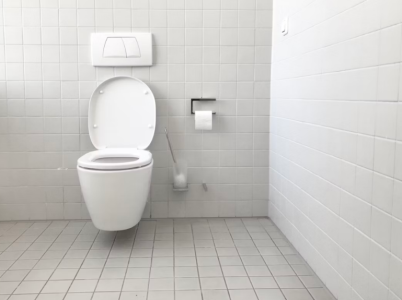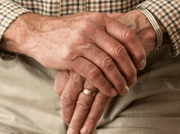Are you one of 150 million Americans unknowingly putting yourself at risk with this everyday bathroom habit?
- Replies 0
Let’s be honest: when it comes to bathroom habits, most of us don’t give them a second thought. After all, we’ve been answering nature’s call for decades—what could possibly go wrong?
But what if we told you that a seemingly harmless habit, shared by nearly half of Americans, could be quietly setting the stage for a wave of infections and long-term health issues?
It’s a topic that’s rarely discussed at the dinner table, but according to recent research and health experts, it’s time we all paid a little more attention to what’s going on behind that shower curtain.
A recent Talker Research survey found that a staggering 45% of Americans admit to peeing in the shower regularly.
That’s about 150 million people! The numbers break down to 20% of women and 30% of men who say they indulge in this habit without a second thought.
For many, it’s a matter of convenience—why not multitask and save a flush? For others, it’s a cheeky rebellion against the “rules” of bathroom etiquette.
But as it turns out, this shortcut could be doing more harm than good, especially for women.

Nurse Kingsley, a women’s health advocate from Kentucky, recently took to social media to sound the alarm: 'Hot take but don't pee standing up in the shower or anywhere for that matter.
“Ladies you are training your bladder that it's okay to empty while standing. Don't do it! This could cause bladder leakage.”
Bladder leakage, or urinary incontinence, is a condition where the bladder loses control and urine leaks out involuntarily. It’s already a common issue as we age, but certain habits can make it worse.
Here’s why: Unlike men, who have the support of the prostate gland to help control urine flow while standing, women lack an equivalent anatomical structure.
This means that when women pee standing up, their pelvic floor muscles and bladder don’t fully relax. The result? The bladder may not empty completely, leaving behind stagnant urine.
When urine lingers in the bladder, it creates a perfect environment for bacteria to grow. Over time, this can lead to urinary tract infections (UTIs), which, if left untreated, can travel up to the kidneys and cause even more serious problems like kidney infections, scarring, high blood pressure, and anemia.
And it’s not just about infections. The repeated act of peeing while standing or “hovering” can train your body to associate that position with urination, making it harder to control your bladder in other situations.
This can lead to embarrassing leaks and a constant urge to go, even when you don’t really need to.
While it’s more common (and anatomically easier) for men to pee standing up, they’re not immune to the risks.
Men with a history of urine flow issues or an enlarged prostate may also struggle to fully empty their bladders while standing, increasing their risk of infection and other complications.
Symptoms of an enlarged prostate include frequent urination (especially at night), a weak or interrupted stream, difficulty starting to urinate, and a feeling of incomplete emptying.
If you’re experiencing any of these, it’s worth talking to your doctor.
The pelvic floor muscles are the unsung heroes of bladder health. They work in tandem with the bladder to store and release urine.
For women, these muscles need to be completely relaxed to allow the bladder to empty fully—a state that’s best achieved while sitting.
Even creative shower positions, like propping one leg up on the wall, don’t cut it. These stances still keep the pelvic muscles slightly tense, preventing a full release and setting the stage for future problems.
Let’s not forget about the skin. Urine running down your legs in the shower can irritate sensitive areas like the buttocks, genitals, and perineum.
Over time, this can lead to redness, rashes, and even skin infections—especially if you have any small cuts or abrasions.
According to Clint Kreider, a licensed marriage and family therapist, peeing in the shower is often a reflection of our modern obsession with multitasking.
“For some, it's a cheeky rebellion against societal ‘rules’, for others, it's sheer efficiency. Why wait when you're already there?” he says.
Read next:

Have you ever thought about the risks of peeing in the shower? Have you experienced any bladder or urinary issues? Or do you have tips for keeping your pelvic floor strong and healthy? Share your thoughts, experiences, and questions in the comments below. Let’s break the silence and help each other stay healthy, one bathroom habit at a time!
But what if we told you that a seemingly harmless habit, shared by nearly half of Americans, could be quietly setting the stage for a wave of infections and long-term health issues?
It’s a topic that’s rarely discussed at the dinner table, but according to recent research and health experts, it’s time we all paid a little more attention to what’s going on behind that shower curtain.
A recent Talker Research survey found that a staggering 45% of Americans admit to peeing in the shower regularly.
That’s about 150 million people! The numbers break down to 20% of women and 30% of men who say they indulge in this habit without a second thought.
For many, it’s a matter of convenience—why not multitask and save a flush? For others, it’s a cheeky rebellion against the “rules” of bathroom etiquette.
But as it turns out, this shortcut could be doing more harm than good, especially for women.

Are you one of 150 million Americans unknowingly putting yourself at risk with this everyday bathroom habit? Image source: Jan Antonin Kolar / Unsplash
Nurse Kingsley, a women’s health advocate from Kentucky, recently took to social media to sound the alarm: 'Hot take but don't pee standing up in the shower or anywhere for that matter.
“Ladies you are training your bladder that it's okay to empty while standing. Don't do it! This could cause bladder leakage.”
Bladder leakage, or urinary incontinence, is a condition where the bladder loses control and urine leaks out involuntarily. It’s already a common issue as we age, but certain habits can make it worse.
Here’s why: Unlike men, who have the support of the prostate gland to help control urine flow while standing, women lack an equivalent anatomical structure.
This means that when women pee standing up, their pelvic floor muscles and bladder don’t fully relax. The result? The bladder may not empty completely, leaving behind stagnant urine.
When urine lingers in the bladder, it creates a perfect environment for bacteria to grow. Over time, this can lead to urinary tract infections (UTIs), which, if left untreated, can travel up to the kidneys and cause even more serious problems like kidney infections, scarring, high blood pressure, and anemia.
And it’s not just about infections. The repeated act of peeing while standing or “hovering” can train your body to associate that position with urination, making it harder to control your bladder in other situations.
This can lead to embarrassing leaks and a constant urge to go, even when you don’t really need to.
While it’s more common (and anatomically easier) for men to pee standing up, they’re not immune to the risks.
Men with a history of urine flow issues or an enlarged prostate may also struggle to fully empty their bladders while standing, increasing their risk of infection and other complications.
Symptoms of an enlarged prostate include frequent urination (especially at night), a weak or interrupted stream, difficulty starting to urinate, and a feeling of incomplete emptying.
If you’re experiencing any of these, it’s worth talking to your doctor.
The pelvic floor muscles are the unsung heroes of bladder health. They work in tandem with the bladder to store and release urine.
For women, these muscles need to be completely relaxed to allow the bladder to empty fully—a state that’s best achieved while sitting.
Even creative shower positions, like propping one leg up on the wall, don’t cut it. These stances still keep the pelvic muscles slightly tense, preventing a full release and setting the stage for future problems.
Let’s not forget about the skin. Urine running down your legs in the shower can irritate sensitive areas like the buttocks, genitals, and perineum.
Over time, this can lead to redness, rashes, and even skin infections—especially if you have any small cuts or abrasions.
According to Clint Kreider, a licensed marriage and family therapist, peeing in the shower is often a reflection of our modern obsession with multitasking.
“For some, it's a cheeky rebellion against societal ‘rules’, for others, it's sheer efficiency. Why wait when you're already there?” he says.
Read next:
- Are you putting your health at risk every time you use your phone on the toilet? The disturbing reason you need to stop now
- Stop peeing in the shower! Doctor reveals shocking reasons why
Key Takeaways
- Health experts warn that women urinating standing up in the shower can lead to bladder leakage and increase the risk of urinary tract infections.
- The female pelvic floor muscles and urinary tract do not get proper support when peeing standing, making it harder to fully empty the bladder and allowing harmful bacteria to develop.
- Over time, regularly peeing in the shower may cause ongoing infections, skin irritation, and potentially permanent kidney damage if left untreated.
- While many Americans pee in the shower as a time-saving habit, experts recommend women always sit to urinate for better bladder and pelvic health.
Last edited:






